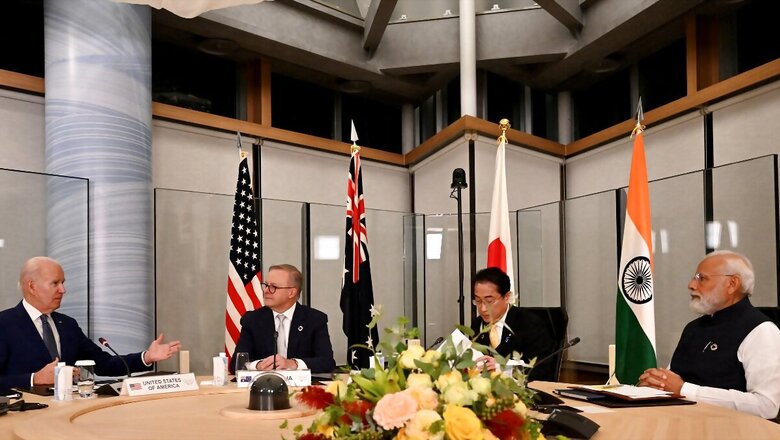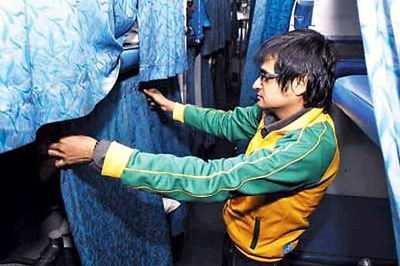
views
The Quad is here to stay, grow and contribute to global prosperity, External Affairs Minister S Jaishankar said on Saturday, noting it has become a substantive platform of the four vibrant democracies seeking to uphold an open and inclusive Indo-Pacific amid global concerns over China’s rising assertiveness.
Speaking at Delhi-based Raisina’s think-tank forum, Jaishankar described the grouping of India, the US, Japan, and Australia as an “overhead light, creative, flexible, nimble, and responsive" enterprise, stressing that others cannot have a “veto" on its choices. During his address, Jaishankar said there are three clear messages about the Quad. “One, the Quad is here to stay. Two, the Quad is here to grow. And three, the Quad is here to contribute."
Quad’s Focus
Australian foreign minister Penny Wong, Japanese foreign minister Yoko Kamikawa and US deputy secretary of state Kurt Campbell also addressed the forum virtually. Despite China’s belief that the coalition is aimed at containing it, the Quad is largely focused on the Indo-Pacific region. “Quad is an overhead light, creative, flexible, nimble, responsive and open-minded enterprise. These are not adjectives we normally associate with bureaucracy. “So, even as we assess its achievements, some compliments at least are due to all those who have shepherded it, who have grown it, who have actually made it unfold with such rapidity," he said.
Jaishankar also explained the Quad’s broad framework. “One, it reflects the growth of a multi-polar order. Two, it is a post-alliance and post-Cold War thinking. Three, it is against spheres of influence. Four, it expresses the democratising of global space and a collaborative, not unilateral, approach. And five, it is a statement that in this day and age, others cannot have a veto on our choices," he said. The external affairs minister noted that the Quad is facilitated by the emergence of the Indo-Pacific, adding it is propelled by a change in the global order that requires “more" and “not less collaboration".
Pressing challenges
The Quad focused on addressing the region’s most pressing needs and challenges including in areas of maritime security, infrastructure, connectivity, critical technologies, communications, space cooperation, cyber security, counter-terrorism, and climate action, he said. Jaishankar highlighted two major programmes under the Quad framework –Indo-Pacific Maritime Domain Awareness (IPMDA) initiative and the Indo-Pacific Economic Framework (IPEF).
Under IPMDA, data is being supplied for countering illicit maritime activities and responding to climate-related and humanitarian events. The IPEF seeks to offer alternative economic engagement mechanisms and it is making steady progress and addressing issues like supply chains, clean economies, sustainability, digital economies amongst others, Jaishankar said. While referring to India-initiated Indo-Pacific Oceans Initiative, he asserted that there should be no doubt about ASEAN (Association of Southeast Asian Nations) centrality in the Indo-Pacific.
“Sometimes, it has been suggested that somewhere these two concepts have diluted ASEAN centrality. I think anybody who doubts ASEAN centrality, when they look at the map of the Indo-Pacific, clearly missed their geography classes at school," he said. “And not just the geography class, I think they have probably passed up on all that has been happening in terms of the East Asia Summit process and how that today is actually a very unique and I would say irreplaceable architecture for this part of the world," he said.




















Comments
0 comment